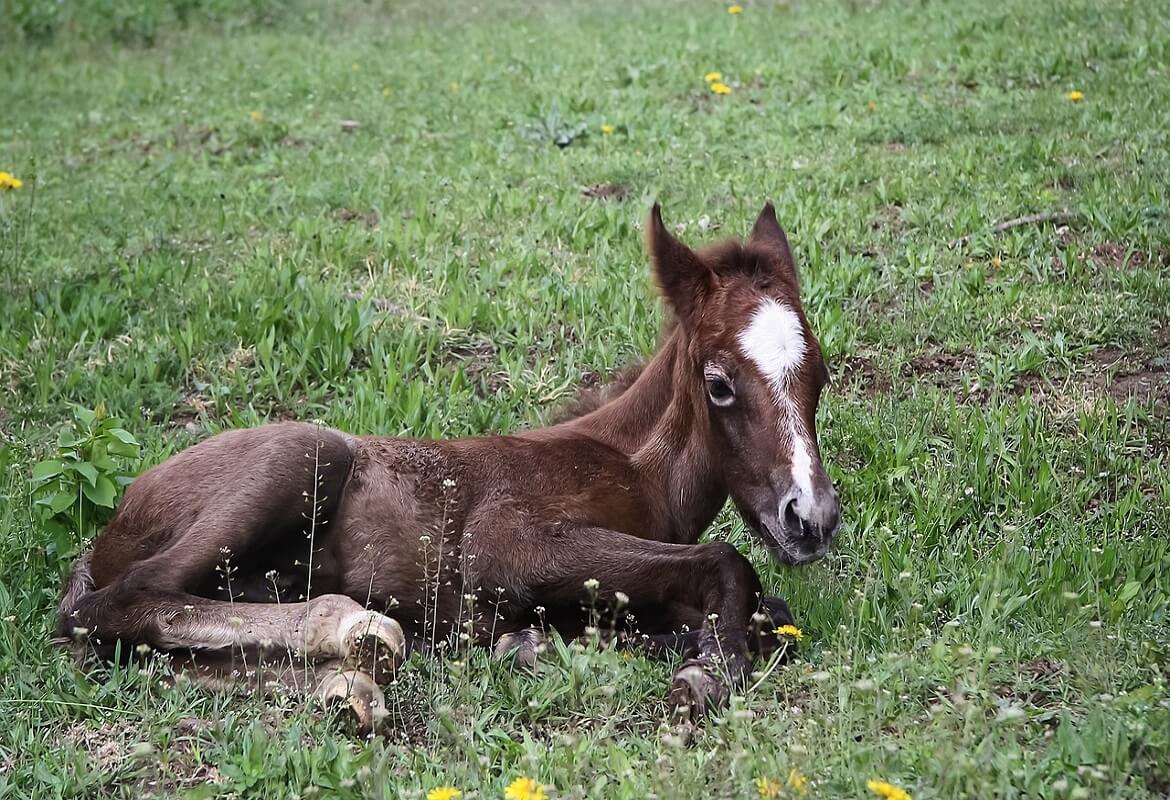Foal nursing, what to know about it?
The correct feeding of the young horse is crucial for its health and growth. Just as with humans, feeding the foal can provide numerous benefits. Breast milk provides all the essential nutrients for the newborn’s growth and development. In addition, it contains nutrients that can strengthen its immune system. In addition, breastfeeding helps to create a strong bond between mother and foal, as well as promoting relaxation for both. Let’s go into more detail now.
The importance of colostrum
The importance of colostrum also comes into play when it comes to foal feeding. The latter is an essential nutrient for newborn foals, just as it is for babies, as it contains a high concentration of substances that are beneficial for the wellbeing, growth and health of the baby. In particular, colostrum is rich in immunoglobulins, substances that help the foal protect itself from infection. It is also a great source of protein and fatty acids that will enable the foal to develop and maintain good health right from the start.
When speaking of foal feeding, it is also useful to know that colostrum is highly digestible, so it is able to provide the necessary nutrients quickly. It must also be said that this ‘first milk’ has a laxative effect, which allows the foal to expel meconium and ‘activate’ its digestive system. Considering all these details, we can say that it is absolutely essential that the foal receives a sufficient amount of colostrum immediately in the first hours of life.
The breeder’s help during the foal’s suckling period
.
When the mare is suckling her foal, the breeder’s help can also make a positive difference. Indeed, during lactation it is important that the foal feels comfortable and is not frightened. In this the breeder can do a lot, creating a calm and safe environment for the newborn and its mother.
It is important to emphasise that the foal needs to be suckled within two hours of delivery. However, in the event of a difficult birth, the foal may not be able to obtain the necessary amount of colostrum from its mother. In such eventualities, it is necessary to act immediately and ensure that a high-quality colostrum substitute is obtained and given to the young horse. There are powder preparations specially formulated for foals, which must be administered according to your vet’s instructions.
Afterwards, if the foal cannot be suckled by its mother, it is the breeder who must feed it. He can do this by using the most suitable products and making sure to give them slowly and calmly so that the foal can assimilate them easily.

Horse health: suckling the foal is important, but not only
.
Keeping the foal healthy can be a difficult, but not impossible task. It is important that the foal is well nourished and has access to a wide variety of healthy, growth-promoting foods. It is also essential to ensure that the foal can live in a clean and healthy environment, that it can move around every day and, above all, that it receives good regular veterinary care.
The latter is essential from the moment of birth, and thus even before the foal’s lactation phase begins. Precisely for this reason, it is a good solution to use calving alarm devices: with tools such as the C6 Evo you can be alerted as soon as labour begins. This way you can be present at the birth and contact your vet immediately.
